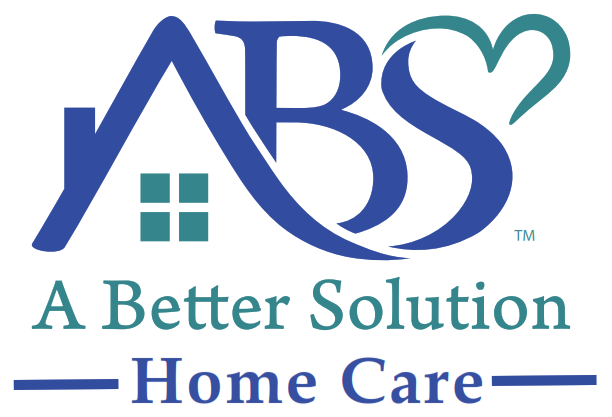
Understanding the Difference Between Home Care and Home Health Care
05-09-2025
The decision to seek professional help for a loved one is never easy. Whether it's due to age, chronic illness, or recovery from a procedure, understanding what kind of care is available is critical. As more families explore options to support their aging loved ones, two commonly recommended solutions emerge: home care and home health care services. These terms are often used interchangeably but they serve different purposes and offer different types of support. While both aim to provide assistance within the comfort of one's home, they cater to different needs. Recognizing these differences ensures that individuals receive the most appropriate care tailored to their unique situations.
What Is Home Care?
Home care refers to non-medical assistance provided in the comfort of one's home. This type of care focuses on helping individuals with daily activities to maintain independence and enhance quality of life. Services typically include:
- Personal Care Services at Home: Assistance with bathing, dressing, grooming, and mobility.
- Companionship: Engaging in conversations, hobbies, and activities to combat loneliness.
- Household Support: Light housekeeping, meal preparation, and running errands.
- 24-Hour Home Care: Around-the-clock support for those requiring continuous assistance.
These services are delivered by trained caregivers who prioritize the individual's preferences and routines, ensuring personalized care that promotes dignity and comfort.
What Is Home Health Care?
Home health care involves medical services provided at home by licensed healthcare professionals. Typically prescribed by a physician, this care is designed for individuals recovering from illness, surgery, or managing chronic conditions. Services may include:
- Skilled Nursing Care: Monitoring vital signs, administering medications, and wound care.
- Therapeutic Services: Physical, occupational, and speech therapy to aid recovery.
- Medical Monitoring: Managing chronic conditions and post-operative care.
Home health care is often short-term, focusing on specific medical goals to help individuals regain independence and health.
Key Differences Between Home Care and Home Health Care
Although both types of support help individuals remain in their homes, home care and home health care services differ significantly in their goals, providers, and outcomes. Knowing these distinctions helps families decide which path is best for their loved ones’ needs.
1. Type of Care Provided
To clarify what is home health care, it refers to home health care services that involve skilled medical attention as; wound care, injections, IV therapy, and monitoring chronic conditions. It is prescribed by a physician and overseen by a licensed medical team.
Home care, on the other hand, focuses on personalized home care services such as bathing, grooming, meal prep, companionship, and mobility assistance. It supports the emotional and physical well-being of individuals who don’t need clinical intervention.
2. Who Delivers the Care
In home care, assistance is provided by professional caregivers who are trained in daily support but not medical care. These caregivers focus on comfort, routine, and companionship, making them a vital part of in-home care for elderly individuals seeking independence.
In contrast, home health care is provided by licensed professionals, such as registered nurses, physical therapists, and certified home health care aides. These aides are trained to deliver medical assistance, including administering medication, monitoring vitals, and aiding with recovery.
3. Care Goals and Outcomes
The primary goal of home care is to help individuals maintain independence while improving their quality of life. This approach focuses on long-term support and emotional stability, making it a central part of the home care advantage.
With home health care, the focus is clinical recovery and stabilization. The goal is often short-term, such as rehabilitating from an injury or managing a chronic condition under a physician's direction.
4. Length and Frequency of Care
Home care services are highly flexible. Whether you need a few hours of help per day or full 24 hour home care, schedules can be customized to suit individual routines. In some cases, families opt for 24/7 in-home senior care to ensure constant support and companionship.
Home health care services are typically provided on a short-term, part-time basis as prescribed by a doctor. Sessions may occur several times a week, but they follow a medical schedule rather than a personal one.
Level of Family Involvement
Families choosing home care often have more say in how care is delivered. Since it revolves around comfort and routine, the care plan is more collaborative and can easily be adjusted as needs change.
Home health care, due to its medical structure, is more clinician-led. While family involvement is encouraged, decisions and modifications must often go through the medical provider.
7. Ideal Use Cases
Home care is best suited for individuals needing daily living assistance, companionship, or support with memory or mobility issues. It is especially valuable for those needing elderly care at home who prefer a familiar environment and long-term assistance.
Home health care is ideal for patients recovering from surgery, living with serious chronic illnesses, or needing regular monitoring by medical professionals.
8. Flexibility and Customization
Home care stands out for its adaptability. Services can grow or scale back as needed, making it perfect for changing lifestyles or progressive health concerns.
Home health care services are governed by treatment plans and medical timelines, offering less flexibility due to regulatory and insurance parameters.
Benefits of Home Care
Opting for home care offers numerous advantages that cater to the holistic well-being of individuals:
1. Personalized Home Care Services
Home care plans are tailored to meet the unique needs and preferences of each individual, ensuring that care aligns with their lifestyle and routines.
2. Enhanced Independence and Comfort
By receiving assistance at home, individuals can maintain their independence and continue living in familiar surroundings, which can positively impact mental and emotional health.
3. Emotional and Social Well-being
Regular interaction with caregivers provides companionship, reducing feelings of loneliness and isolation, and promoting a sense of belonging.
4. Cost-Effectiveness
Home care is often more affordable than institutional care settings, allowing families to allocate resources more efficiently while still receiving quality support.
5. Flexibility and Convenience
Services can be scheduled according to individual needs, whether it's a few hours a week or 24/7 in-home senior care, offering unparalleled flexibility.
6. Peace of Mind for Families
Knowing that a loved one is receiving compassionate and personalized care at home provides families with reassurance and reduces caregiver stress.
7. Support for Daily Living
From assistance with personal hygiene to meal preparation, home care ensures that daily needs are met, enhancing overall quality of life.
Benefits of Home Health Care
Home health care provides essential medical support within the home setting, offering several key benefits:
1. Access to Skilled Medical Services
Licensed professionals deliver medical care, including wound care, medication administration, and therapy, ensuring high-quality health support.
2. Suitable for Post-Hospitalization Recovery
Home health care facilitates recovery after hospitalization, reducing the risk of readmission and promoting healing in a comfortable environment.
3. Management of Chronic Health Conditions
Regular monitoring and medical interventions help manage chronic illnesses, improving health outcomes and stability.
4. Convenience and Reduced Hospital Visits
Receiving medical care at home minimizes the need for frequent hospital visits, saving time and reducing exposure to potential infections.
5. Education and Support for Families
Healthcare professionals educate family members on care techniques, empowering them to participate actively in their loved one's health journey.
6. Personalized Medical Attention
Care plans are customized to address specific medical needs, ensuring that individuals receive targeted and effective treatment.
When to Choose Home Care vs. Home Health Care
Deciding between home care and home health care services depends on your loved one’s specific needs, preferences, and health condition. Both offer valuable support at home, but their purposes are different.
Choose Home Care When:
- Your loved one needs help with daily tasks like bathing, grooming, dressing, and meal prep.
- Emotional support, companionship, and routine are just as important as physical assistance.
- You’re looking for flexible options, including 24 hour home care or part-time help.
- You want a cost-effective solution for long-term, non-medical support.
- Your family wants to remain actively involved in the care process.
- The priority is personalized home care services that promote dignity and independence.
Choose Home Health Care When:
- There is a medical condition that requires skilled nursing or therapy.
- A physician has prescribed specific treatments or monitoring.
- The goal is recovery after surgery, managing an illness, or stabilizing a health issue.
- You need professional medical support at home from a licensed home health care aide.
- The focus is short-term healing rather than long-term assistance.
Understanding the difference between home care and home health care services is essential when planning for the well-being of a loved one. While both play important roles in supporting individuals at home, their goals and approaches vary widely. Home care excels at providing compassionate, flexible, and non-medical assistance that promotes independence and comfort over the long term. Meanwhile, home health care is ideal for short-term clinical needs under medical supervision.
By evaluating the level of support needed, whether it’s emotional companionship or skilled medical care, you can make a confident choice that enhances quality of life. And for many families seeking dependable, personalized support, the home care advantage remains a trusted, empowering solution.
Ready to explore compassionate, personalized home care for your loved one? Contact A Better Solution Home Care today to learn how we can support your family's needs.
